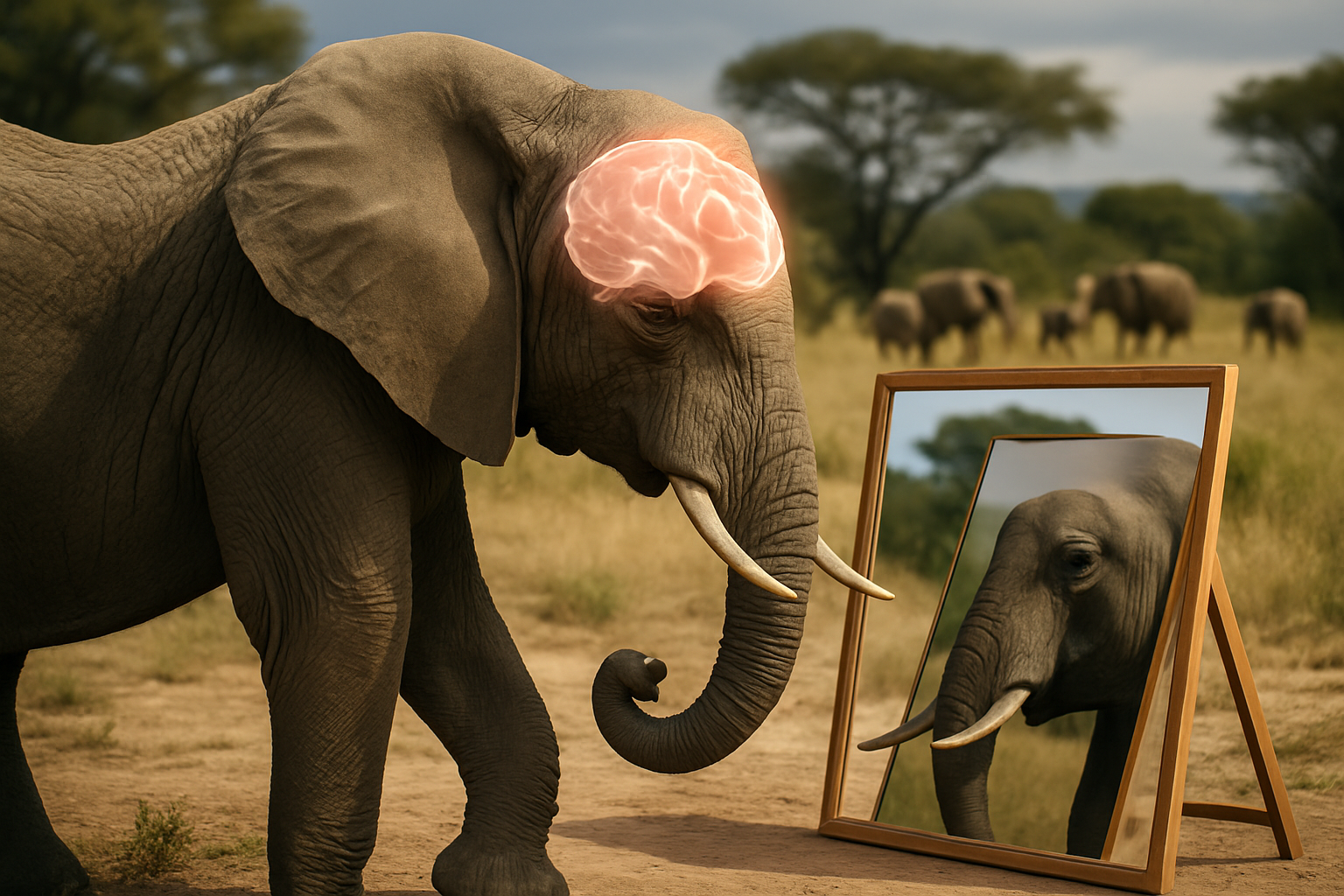Unraveling the Enigma of Elephant Cognition
Elephants, the gentle giants of the animal kingdom, have long captivated our imagination with their intelligence and emotional depth. Recent scientific breakthroughs have shed new light on the remarkable cognitive abilities of these magnificent creatures, revealing a level of mental prowess that rivals some of the most intelligent species on Earth. This article delves into the fascinating world of elephant cognition, exploring their problem-solving skills, social intelligence, and self-awareness.

Problem-Solving Prowess
Elephants have demonstrated remarkable problem-solving skills in both wild and captive settings. Researchers have observed elephants using tools to access hard-to-reach food, a behavior once thought to be exclusive to primates. In one study, Asian elephants at a Thai elephant sanctuary were able to push boxes and stand on them to reach food suspended high above their heads. This display of insight and creativity highlights their ability to understand cause-and-effect relationships and devise novel solutions to challenges.
Social Intelligence and Empathy
Perhaps one of the most striking aspects of elephant cognition is their advanced social intelligence. Elephants live in complex social structures, with matriarchs leading family groups and maintaining intricate social bonds. They exhibit behaviors that suggest a deep understanding of others’ emotions and needs. For instance, elephants have been observed comforting distressed herd members by touching them with their trunks or making soothing vocalizations. This empathetic behavior extends beyond their own species; there are documented cases of elephants showing concern for other animals, including humans in distress.
Self-Awareness and Mirror Recognition
The ability to recognize oneself in a mirror is considered a hallmark of self-awareness, a trait shared by only a handful of species. Elephants have joined this elite group, demonstrating their capacity for self-recognition in mirror tests. In these experiments, elephants were marked with visible paint on their bodies and then presented with a mirror. The elephants touched the marked areas on their own bodies, indicating that they understood the reflection as an image of themselves. This finding has profound implications for our understanding of elephant consciousness and their potential for introspection.
Communication and Language-Like Abilities
Elephant communication is a complex system that goes far beyond the trumpeting calls we typically associate with these animals. They use a variety of vocalizations, some of which are below the range of human hearing, to convey messages over long distances. Recent studies have revealed that elephants can distinguish between human languages and even differentiate between threatening and non-threatening human voices. This sophisticated auditory processing suggests a level of language comprehension that was previously underestimated.
Emotional Intelligence and Grieving Behaviors
One of the most poignant aspects of elephant cognition is their emotional intelligence, particularly evident in their grieving behaviors. Elephants have been observed engaging in what appears to be mourning rituals for deceased herd members. They may spend days standing vigil over the body of a fallen companion, gently touching the bones with their trunks, and even returning to the site years later. This behavior suggests a deep emotional capacity and possibly an understanding of death that few other animals exhibit.
Implications for Conservation and Ethics
As our understanding of elephant cognition grows, so too does our ethical responsibility towards these magnificent creatures. The recognition of their advanced mental abilities raises important questions about their treatment in captivity and the urgency of conservation efforts. With elephant populations facing threats from habitat loss and poaching, the preservation of these intelligent beings becomes not just an ecological imperative but an ethical one as well.
Future Directions in Elephant Cognition Research
The field of elephant cognition research is rapidly evolving, with new technologies offering unprecedented insights into their mental world. Brain imaging techniques, previously limited to smaller animals, are being adapted for use with elephants, promising to reveal even more about their cognitive processes. Additionally, long-term observational studies in the wild continue to uncover new aspects of their social and emotional lives.
Conclusion: A Call for Understanding and Protection
The study of elephant cognition has revealed a creature of remarkable intelligence, emotional depth, and social complexity. As we continue to unravel the mysteries of their mental world, we are challenged to reexamine our relationship with these extraordinary animals. The insights gained from this research not only enrich our understanding of animal intelligence but also underscore the importance of preserving elephant populations and their habitats. In protecting elephants, we safeguard not just a species, but a rich tapestry of cognition and culture that has evolved over millions of years.






